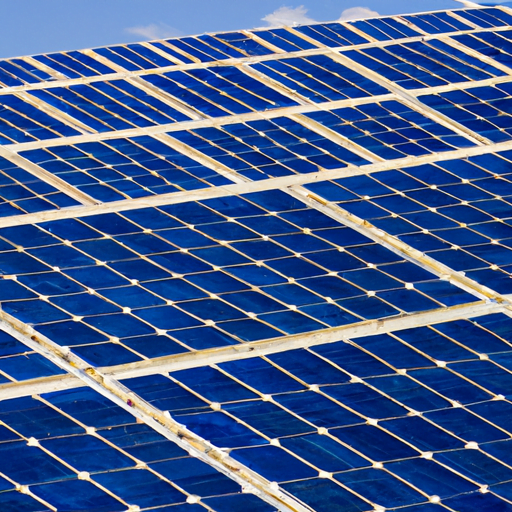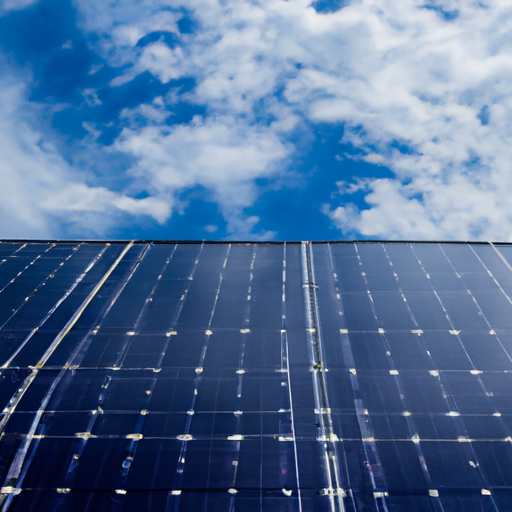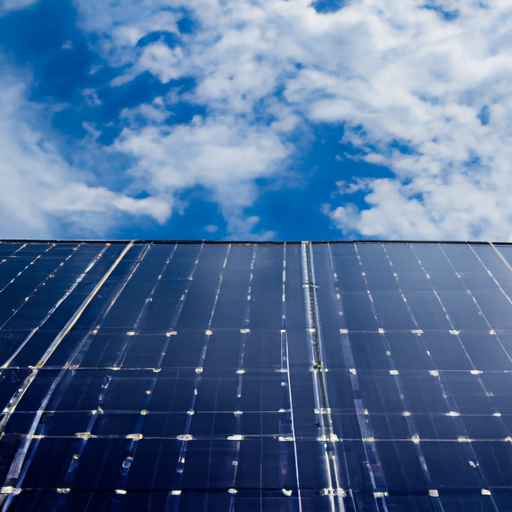Have you ever thought about living off the grid? It’s a popular concept for those who want to reduce their carbon footprint and become more self-sufficient. One of the key components of living off the grid is using solar panels to generate electricity. But have you ever wondered what impact temperature has on the efficiency of solar panels?
Well, let me tell you, temperature can actually have a significant impact on solar panel efficiency. When it’s hot outside, solar panels can actually become less efficient. This is because the excess heat can cause the voltage of the solar cells to decrease, which in turn reduces the overall power output. On the other hand, when it’s too cold, solar panels can also lose some of their efficiency.
In fact, there is an ideal temperature range at which solar panels work most efficiently. It’s usually around 25 to 35 degrees Celsius (or 77 to 95 degrees Fahrenheit). So, if the temperature is too high or too low, you may see a decrease in the energy production of your solar system. But don’t worry, there are ways to mitigate these temperature-related effects and optimize the performance of your solar panels. In our article, you’ll learn all about these methods and more. Stay tuned!
The Impact of Temperature on Solar Panel Efficiency
Living off the grid has become increasingly popular as people strive for more sustainable and environmentally friendly lifestyles. One of the key components of an off-grid setup is a solar panel system, which harnesses the power of the sun to generate electricity. However, have you ever wondered how temperature affects the efficiency of your solar panels?
Solar Panel Efficiency Overview
Solar panel efficiency refers to the ability of a solar panel to convert sunlight into usable electricity. The higher the efficiency, the more electricity the panel can generate from a given amount of sunlight. Efficiency is typically expressed as a percentage, with modern solar panels ranging from 15% to 20% efficiency.
Importance of Solar Panel Efficiency
Solar panel efficiency is crucial because it directly impacts the amount of electricity you can generate from your panels. Higher-efficiency panels can produce more electricity, making them ideal for homeowners who have limited space for installing solar panels.
Impact of Temperature on Solar Panel Efficiency
Temperature plays a significant role in the efficiency of solar panels. As temperatures rise, the performance of solar panels tends to decrease. The relationship between temperature and efficiency is not linear and can have a considerable impact on the overall electricity generation.
Temperature’s Effect on Photovoltaic Cells
Solar panels contain multiple photovoltaic cells that convert sunlight into electricity. These cells are made of semiconductor materials that are sensitive to temperature. As the temperature increases, the conductivity of these materials also increases, leading to a decrease in overall performance.
Optimum Temperature Range for Solar Panels
Solar panels work best under certain temperature conditions. The ideal temperature range for most solar panels is between 25 to 35 degrees Celsius (77 to 95 degrees Fahrenheit). Within this temperature range, the panels can efficiently convert sunlight into electricity.
Heat-Related Issues and Efficiency Loss in Solar Panels
When solar panels are exposed to extreme heat, several heat-related issues can arise, leading to a decrease in efficiency.
One common issue is the expansion and contraction of materials within the solar panel. Temperature variations can cause the different components of the panel to expand and contract at different rates, leading to stress and potential damage.
Another heat-related issue is the increase in resistance within the electrical components of the solar panel. As the temperature rises, the electrical resistance in the wiring and connections increases, resulting in a loss of energy during transmission.
To mitigate these issues, manufacturers incorporate thermal management techniques into solar panel designs. These techniques aim to dissipate excess heat and maintain the panels within the optimum temperature range for optimal performance.

Other Factors Affecting Solar Panel Efficiency
While temperature is a significant factor in solar panel efficiency, there are other elements to consider as well.
Sunlight Intensity
Sunlight intensity refers to the amount of solar radiation that reaches the surface of the solar panel. Higher sunlight intensity results in increased electricity production. Factors such as cloud cover, atmospheric conditions, and the angle of the sun can all affect sunlight intensity.
Dust, Dirt, and Debris
Accumulation of dust, dirt, and debris on the surface of solar panels can significantly reduce their efficiency. These particles create a barrier between the sunlight and the photovoltaic cells, reducing the amount of light that can be converted into electricity. Regular maintenance and cleaning of solar panels are essential to maintain optimal performance.
Shading
Shading is another critical factor that affects solar panel efficiency. Even partial shading can significantly reduce the electricity production of a panel. When one or more cells are shaded, the current produced by the other cells is also affected, leading to an overall decrease in efficiency. Proper positioning and placement of solar panels can help minimize shading issues.
Faulty Wiring or Connections
Like any electrical system, faulty wiring or connections can negatively impact the efficiency of solar panels. Poor connections or corroded wiring can increase electrical resistance and lead to energy loss. Regular inspections and maintenance are essential to ensure optimal performance.
Conclusion
Temperature plays a crucial role in the efficiency of solar panels. While higher temperatures can decrease performance, solar panels are designed to operate within a specific temperature range. It is important to consider other factors such as sunlight intensity, shading, and maintenance to maximize the efficiency of your solar panel system.
Living off the grid provides numerous benefits, including reduced dependence on fossil fuels and lower energy costs. By understanding the impact of temperature and other factors on solar panel efficiency, you can make informed decisions and optimize the performance of your solar panel system, helping you achieve a sustainable and energy-efficient lifestyle.





